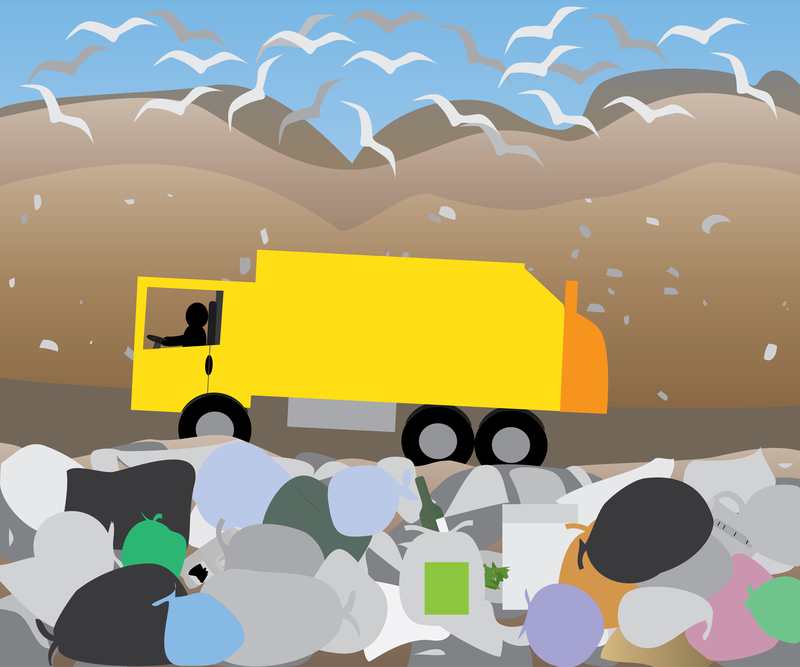Hard Rubbish Explained: The What and How of Disposal
Understanding the ins and outs of hard rubbish disposal can not only help keep our environments clean but also promote recycling and responsible waste management. In this comprehensive guide, we will delve into what hard rubbish is, how to effectively dispose of it, and the benefits of doing so responsibly.
What is Hard Rubbish?
Hard rubbish is a term commonly used to describe large household items that are no longer needed or functional. These items are often too large or bulky to dispose of through regular waste collection services. Examples include furniture, mattresses, appliances, and electronics. Generally, if it doesn't fit in a standard garbage bin, it's likely considered hard rubbish.
Types of Hard Rubbish
- Furniture: Includes sofas, tables, chairs, beds, and more. Often disposed of when moving or redecorating.
- Appliances: Large household devices such as refrigerators, ovens, and washing machines.
- Electronic Waste (E-waste): Items like computers, TVs, and other small electronics.
- Mattresses: Often discarded due to wear and tear or bed bug infestations.
- Miscellaneous: Items such as carpets, garden waste, and multi-material objects.

How to Dispose of Hard Rubbish Responsibly
Disposing of hard rubbish responsibly not only benefits the environment but can also serve to declutter your home efficiently. Here's a step-by-step guide:
1. Check with Local Council
Contact your local council to understand the rules and regulations regarding hard rubbish disposal in your area. Many councils offer free pickups for households at specific times of the year.
2. Arrange for a Curbside Pickup
Set up a curbside collection service with your local municipality. Many councils provide annual or bi-annual hard rubbish collections. Be sure to place your items neatly on the curb and follow any guidelines provided.
3. Use a Private Waste Collection Service
If local council pickups are infrequent or non-existent, consider hiring a private waste collection company. These services will usually charge a fee but offer flexibility with timing and volume.
4. Donate or Sell Usable Items
Before opting for disposal, assess if your items can be donated or sold. Many charitable organizations accept furniture and appliances in good condition, and online marketplaces are great for reselling goods that still have value.
5. Visit a Recycling Facility
For items like electronic waste and metals, a recycling facility may be the best option. Many areas have drop-off locations specifically for recycling hard rubbish.
Environmental and Economic Benefits of Proper Disposal
1. Reducing Landfill Use
By choosing to donate, sell, or recycle, you extend the life of products and reduce the burden on landfills. Landfills are significant contributors to environmental issues, including soil and water contamination.
2. Encouraging Recycling
Recycling materials like metals and plastics from hard rubbish saves natural resources and energy. It's an essential step in supporting sustainable living practices.
3. Supporting the Circular Economy
Through recycling and reusing, we contribute to a thriving circular economy, where products and materials are continually repurposed, minimizing waste.
4. Job Creation
The waste management and recycling sector provides jobs at multiple levels, from collection to processing, further demonstrating the economic value of responsible hard rubbish disposal.

Common Mistakes in Hard Rubbish Disposal
To ensure your hard rubbish doesn't create more problems, be aware of these common disposal mistakes:
- Illegal Dumping: Avoid disposing of items in unauthorized or unpermitted areas.
- Contamination: Ensure items are separated correctly as per recycling guidelines to prevent contamination.
- Ignoring Regulations: Disposal without heed to local regulations can lead to penalties.
- Overloading Pickups: Respect volume limits when arranging for collections to avoid items being left behind.
Conclusion
Properly managing hard rubbish disposal is crucial for environmental preservation and sustainable community practices. Whether through donating, recycling, or hiring professional services, effective disposal methods can help mitigate adverse environmental impacts while also providing social and economic benefits.
By understanding the importance and techniques of hard rubbish disposal, we empower ourselves and our communities to make informed and responsible choices. Let's work towards a cleaner, greener, and more sustainable future.